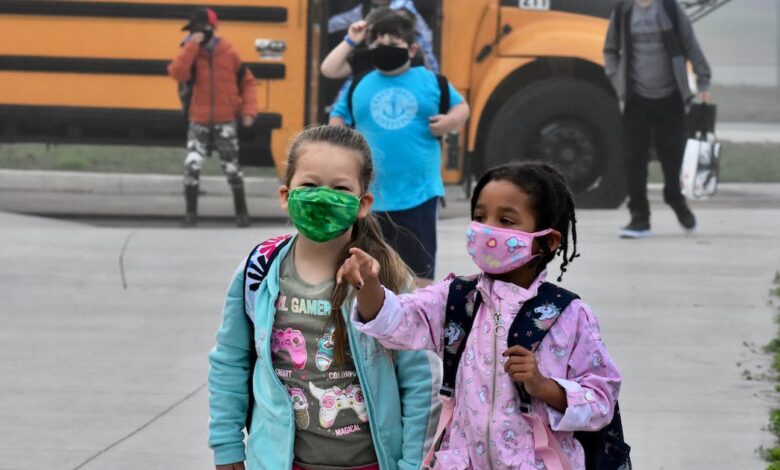Long COVID rates ‘extremely low’ in children, report reveals

Long COVID.
It’s something more than 3.5 million Canadian adults experience, a Statistics Canada study revealed last month.
But according to a recent report by the Pediatric Emergency Research Canada (PERC) COVID study group, the rate of long COVID is extremely low when it comes to children.
Long COVID, as defined by the World Health Organization, is when a person has the continuation or development of new symptoms three months after their initial COVID-19 infection, with symptoms lasting for at least two months with no other explanation.
“So out of that definition that a lot of other studies haven’t used, we were able to really drill down and see what the effects of long COVID are on kids,” Dr. Jason Emsley, an emergency physician at the IWK Health Centre in Halifax and member of the PERC COVID study group, said in an interview on Monday.
Emsley said children with long COVID may have ongoing respiratory difficulties, headaches, confusion, general weakness and/or fatigue.
‘Less than one per cent’
The study, which defined a child as anyone under the age of 18, looked at 5,147 children (1,152 who tested positive for COVID and 3,995 who tested negative) six months after being tested and 5,563 children (1,192 who tested positive for COVID and 4,371 who tested negative) 12 months after being tested.
“What we found overall, looking at thousands of kids, is that the rate of long COVID is extremely low, less than one per cent,” Emsley said.
Emsley highlighted only eight children who participated in the study has long COVID. Seven of the eight children had respiratory symptoms, three had systemic general symptoms and one had some confusion and ongoing headaches.
“Our findings, however, may be less generalizable to older children, as over 80 per cent of study participants were younger than eight years and in general, younger children are at lower risk of reporting (post-COVID-19 condition),” the research study group said in its report on its findings.
While the low rate of long COVID in children is what Emsley considers a good news story, he stressed COVID-19 still has a “massive impact for kids.”
“The effect of COVID on kids in general has been missing a lot of school, the huge impact it’s had on socialization, on education, on family life, you know, families having to take time off work, the huge economic changes that have happened with COVID, those all affect kids,” he said.
“But we can say at least it’s not long COVID for the most part.”
Emsley said the study was made possible thanks to a database started by Dr. Stephen Freedman at Alberta Children’s Hospital, which has also set up PERC to look at other datasets, such as different COVID variants, at emergency departments across the country.
He said PERC will continue to use the database as it gives them an ability to “monitor these diseases in almost real time.”



